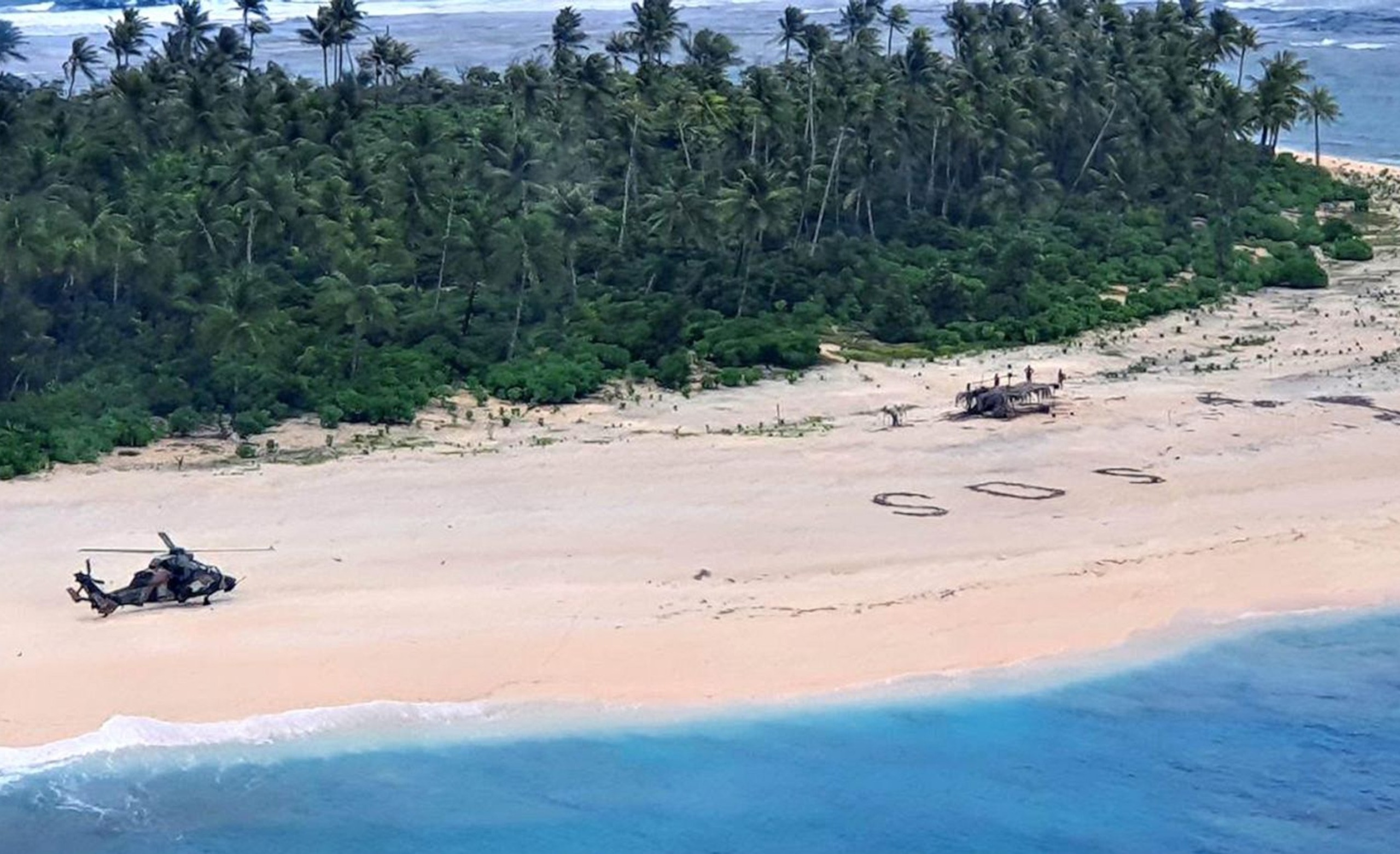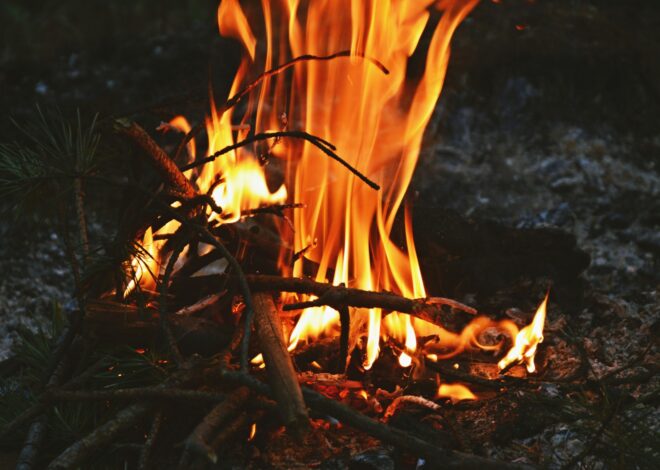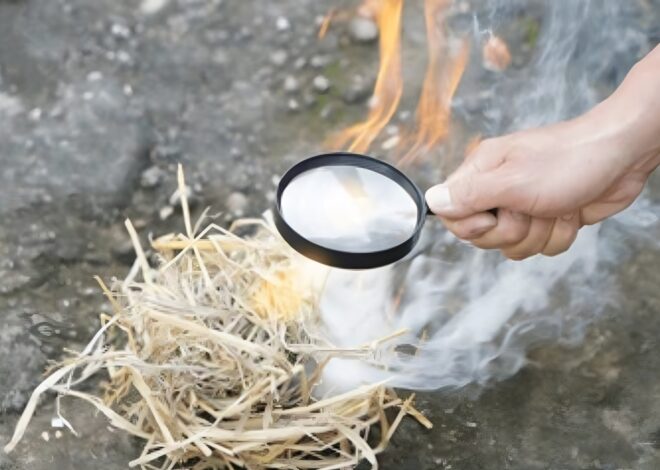
Surviving On A Deserted Island
Surviving on a deserted island requires more than just luck; it demands basic survival skills, resourcefulness, and resilience. Imagine being stranded on a deserted island, surrounded by nothing but the vast expanse of the ocean.
The idea may seem like something out of a survival movie, but for some, it could become a reality. In this blog post, we will explore the essential strategies needed to thrive in such extreme conditions. So grab your imaginary life jacket and join us on this virtual adventure!
The Importance of Basic Survival Skills
Imagine finding yourself stranded on a deserted island with nothing but your wits to rely on. In this dire situation, basic survival skills become invaluable. Knowing how to construct shelter from natural materials can provide crucial protection from the elements.
Building a fire is not just for warmth; it can also serve as a signal for potential rescuers. Understanding different water sources and filtration methods is essential for staying hydrated and healthy in an isolated environment.
Honing hunting, fishing, and foraging techniques becomes necessary when food supplies are scarce. Additionally, mental fortitude plays a significant role in overcoming the challenges of isolation.
By mastering these fundamental survival skills, you increase your chances of making it through even the toughest situations unscathed.
Finding Shelter and Building a Fire
When stranded on a deserted island, finding shelter and building a fire are essential for survival. Your first task is to locate a suitable spot that provides protection from the elements – think caves, rock overhangs, or sturdy trees. Stay away from low-lying areas prone to flooding.
Once you’ve found your shelter, it’s time to focus on creating fire. Look for dry materials like dead leaves, twigs, or bark to start your fire easily. Collect different sizes of fuel wood to keep it burning steadily.
Use primitive methods such as friction-based techniques like rubbing sticks together or using a bow drill. If available, utilize items from your surroundings like flint or rocks with high silica content for sparks.
Remember that maintaining a fire requires constant attention and care. It not only provides warmth but also serves as a signal for potential rescuers. Mastering these skills will significantly increase your chances of surviving in the wild until help arrives.
Water Sources and Filtration Methods
When stranded on a deserted island, finding a reliable source of water is crucial for survival. While the surrounding ocean may seem tempting, drinking seawater can lead to dehydration rather than quenching your thirst due to its high salt content.
Fortunately, there are alternative ways to obtain safe drinking water. Rainwater can be collected using makeshift containers like shells or leaves. It’s important to filter and purify this water before consuming it to avoid potential contaminants.
Building a simple filtration system with layers of sand, charcoal, and gravel can help remove impurities from collected water. Boiling water over a fire is another effective method for killing harmful bacteria and parasites that may be present.
Remember, staying hydrated is essential for maintaining your energy levels and overall well-being while awaiting rescue on the deserted island.
Hunting, Fishing and Foraging for Food
When stranded on a deserted island, finding food becomes a top priority. Hunting can be challenging without proper tools, but crafting makeshift weapons like spears or traps from available resources is key. Fishing in the surrounding waters with handmade fishing gear can also provide sustenance.
Foraging for edible plants and fruits requires knowledge of local flora to avoid potential dangers. It’s essential to differentiate between what’s safe to eat and what could be harmful. Exploring the island’s vegetation can lead to unexpected sources of nutrition.
Combining hunting, fishing, and foraging increases your chances of securing a diverse diet while marooned. Being resourceful and adaptable in sourcing food is crucial for long-term survival in this unforgiving environment where every meal counts.
Mental and Emotional Challenges of Isolation
Being stranded on a deserted island can take a toll on your mental and emotional well-being. The isolation, the uncertainty of rescue, and the constant struggle for survival can all contribute to feelings of loneliness and despair. It’s normal to feel anxious, scared, or even hopeless in such extreme circumstances.
Without the usual comforts and distractions of everyday life, you may find yourself facing your inner demons and wrestling with negative thoughts. It’s crucial to stay strong mentally in order to overcome these challenges. Keeping a routine, staying busy with tasks like building shelter or gathering food, and finding ways to stay positive are essential for maintaining your sanity.
Connecting with nature can also help alleviate feelings of isolation. Spending time observing the beauty of the island, listening to the sounds of wildlife, and feeling connected to something greater than yourself can bring a sense of peace amidst the chaos. Remember that it’s okay to have moments of weakness but try not to let them consume you entirely.
Making Tools and Creating a Signaling System
Crafting tools and devising a signaling system are vital skills when stranded on a deserted island. Utilizing resources like stones, branches, and shells can help create essential tools for survival. Carving a spear or fashioning a fishing hook from available materials can aid in hunting for food.
Building rudimentary tools such as axes or knives enhances efficiency in tasks like gathering firewood or constructing shelter. Additionally, creating a signaling system using mirrors, bright clothing, or fires can attract attention from potential rescuers.
By strategically placing signals along the shoreline or in an open area, you increase the chances of being spotted by passing ships or aircraft. Remember to keep your signals simple yet visible from afar to maximize their effectiveness.
Inventiveness and resourcefulness play key roles in making tools and establishing communication methods that could ultimately lead to rescue during your time on the deserted island.
Rescue Strategies
Once you’ve mastered the art of survival on a deserted island, your next focus should be on rescue strategies. Creating visible signals is crucial in catching the attention of passing ships or aircraft. Use rocks, tree branches, or anything else that stands out against the natural surroundings to spell out HELP or SOS on the beach.
Another effective method is to start a fire during daylight hours to create smoke that can be seen from afar. Ensure your fire is well-ventilated and positioned on high ground for optimal visibility. Additionally, constructing large arrows or symbols with stones leading towards your location can guide potential rescuers right to you.
Remember to keep an eye out for any passing vessels and use reflective materials like mirrors or shiny objects to catch their attention when they are within range. Stay vigilant and ready at all times for any opportunity that may lead to your long-awaited rescue.
Lessons Learned from Surviving on a Deserted Island
Surviving on a deserted island is not just about physical survival, but also about mental resilience and adaptability. The experience teaches us valuable lessons that can be applied to our everyday lives. It shows the importance of basic survival skills like finding shelter, sourcing water, and hunting for food. It highlights the need for creativity in making tools and creating signaling systems to attract rescue.
Moreover, being stranded on a deserted island brings to light the emotional challenges of isolation and the strength needed to overcome them. It forces us to confront our fears and anxieties head-on, pushing us out of our comfort zones. The experience ultimately reminds us of the power of human ingenuity and determination in times of adversity.
By learning how to survive on a deserted island, we gain a deeper appreciation for the resources available to us in modern society. We realize the significance of community support, communication strategies, and problem-solving skills in overcoming obstacles.
In essence, surviving on a deserted island is more than just an adventure – it’s a profound lesson in resilience, resourcefulness, and gratitude that can reshape our perspective on life itself.



